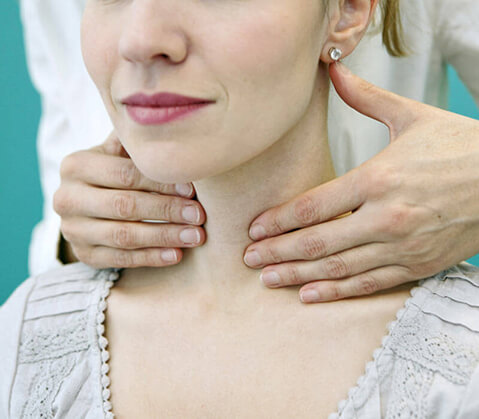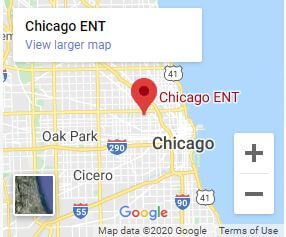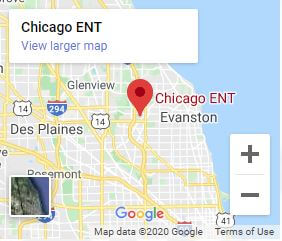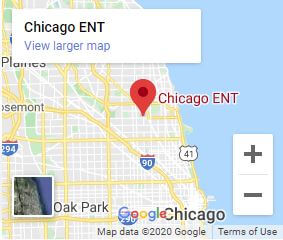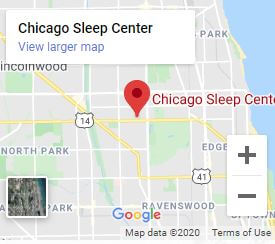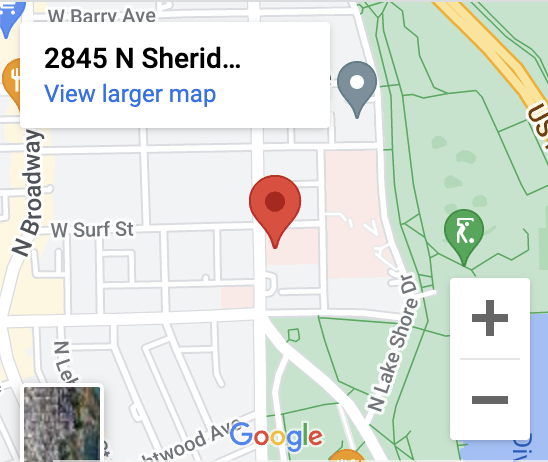Many people occasionally experience cotton or dry mouth, especially when they’re under stress, nervous, or upset. However, when your mouth always feels parched or if you have trouble swallowing, the feeling can be more than uncomfortable.
A dry mouth can be a side-effect of the medication you’re taking or a symptom of a potentially serious health condition. Keep reading to learn more about dry mouth and if it’s something you should be concerned about.
What is Dry Mouth?
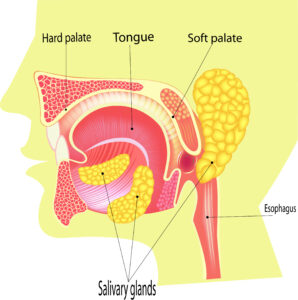
Saliva plays a vital role in your oral health, including:
- Preventing infection by regulating fungi and bacteria in the mouth
- Saliva protects your teeth from decay
- Aiding in digesting food, making it easier for you to chew and swallow

Dry mouth, also called xerostomia, occurs when you don’t make enough saliva to keep your mouth wet. If you have persistent dry mouth, it can lead to serious health problems.
A dry mouth can increase your risk of sensitive teeth, tooth decay, eroded enamel, inflamed gums, and mouth infections. Other problems associated with dry mouth include a burning sensation, dry nasal passages, and hoarseness.
Having a dry mouth at night can disrupt your sleep, forcing you to wake up. If it’s left untreated, dry mouth can negatively affect your quality of life.
Dry Mouth Symptoms

The signs and symptoms of dry mouth include:
- Bad breath
- Experiencing a sticky, dry sensation in the mouth
- Recurring sore throat
- Rough tongue
- Sores in the mouth
- Dry, cracked lips
- Finding it hard to wear dentures
- Struggling to talk, chew, swallow, or taste
- Difficulty tolerating sour, spicy, or salty flavors
Causes of Dry Mouth
Various factors can cause you to experience dry mouth. Knowing the reason for your dry mouth might help treat it and prevent it from coming back. Some of the common causes of dry mouth are:
Sinus Problems
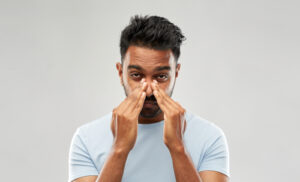
Structural issues such as nasal polyps or a deviated septum can make it hard for you to breathe through the nose. If you’re experiencing sinus problems like congestion, you may have to breathe using your mouth.
Autoimmune Disease
An underlying autoimmune disease like Sjogren’s syndrome could be responsible for your dry mouth. Sjogren’s syndrome is a condition that occurs when your body attacks the glands that release saliva and tears.
Rheumatoid arthritis and lupus are other autoimmune diseases that can trigger dry mouth.
Mouth Breathing
Allergies and a bad cold can make you breathe out of your mouth. But some people still breathe through their mouths during sleep, even without allergies or a cold.
When you have your mouth open for extended periods, the inside is constantly exposed to dry air, leading to a dry mouth.
Medications

Different types of medications may cause dry mouth as a side effect. A change in medication, an increase in dosage, or being on more than one medication may also lead to dry mouth. Some of the medications that can contribute to dry mouth include:
- Antidepressants
- Antihistamines
- Antipsychotics
- Decongestants
- Diuretics
- Certain sedatives
- Some stimulants for treating ADHD
- Certain asthma drugs
- Bladder medications for reducing urination
- Some muscle relaxants
- Certain glaucoma medications
If you think that your medications could be what’s causing your dry mouth, let your doctor know. They may be able to switch you to a different medicine with less intense side effects.
Dehydration
Dehydration is one of the most common causes of dry mouth. To avoid experiencing dry mouth, you should be drinking at least 8 ounces of water every day.
If you’re losing more fluids than usual, you may develop a dry mouth due to the lack of water in your body.
Illnesses and Medical Conditions
Some of the illnesses and medical conditions linked to dry mouth are:
- Diabetes
- High blood pressure
- Hepatitis C
- COVID-19
Age
Dry mouth is more prevalent in older adults. Among the contributing factors are long-term health problems, inadequate nutrition, and increased use of certain medications.
Drinking Too Much Alcohol
Alcohol has a diuretic effect that decreases saliva secretion. If you’re drinking in excess, you may notice that your mouth is dry.
Smoking
Besides being bad for you, smoking can slow down saliva production, leading to dry mouth.
Sleep Apnea
If you have sleep apnea, you may breathe through your mouth while sleeping at night. This can make your mouth feel dry and uncomfortable when you wake up in the morning.
Waking up with a dry mouth can be a sign of having sleep apnea. Additionally, using a continuous positive airway pressure (CPAP) machine to treat sleep apnea can cause dry mouth.
Cancer Treatment
Chemotherapy drugs used to treat cancer can thicken saliva, resulting in dry mouth. The salivary glands can also be affected when exposed to radiation during cancer treatment.
Nerve Damage
Experiencing a head or neck injury or undergoing surgery can cause damage to the nerves that prompt the salivary glands to secrete saliva, resulting in a dry mouth.
Preventing Dry Mouth

There are various home remedies you can try to keep dry mouth at bay:
- Use a humidifier at night to prevent the air in your room from becoming too dry
- Drink lots of fluids to stay hydrated and ease the symptoms of dry mouth
- Chew sugarless gum to encourage saliva production
- Rinse with mouthwashes containing xylitol to stimulate saliva production
- Limit your alcohol intake
- Avoid caffeine
- Quit smoking
Home remedies for dry mouth may only get you so far. You may need to see a specialist at Chicago ENT to get the relief you need.
Treatment for Dry Mouth
Treating your dry mouth will depend on the root cause of the problem. For instance, if it’s determined that medication for your dry mouth is the cause, your doctor might adjust the dosage or switch your prescription.
When your dry mouth is related to salivary glands that aren’t working correctly but still secrete some saliva, your doctor can give you medication to improve gland function. They may also recommend artificial saliva to restore moisture to your mouth.

Find Relief for Your Dry Mouth
Having a dry mouth occasionally is often not a concern. But repeated or chronic cases of dry mouth require medical attention. At Chicago ENT, our skilled team can accurately diagnose your dry mouth and offer a highly effective treatment plan to provide long-term relief.
You don’t have to live with the frustrating symptoms of dry mouth. Schedule an appointment at any of Chicago ENT’s five convenient locations, now!





